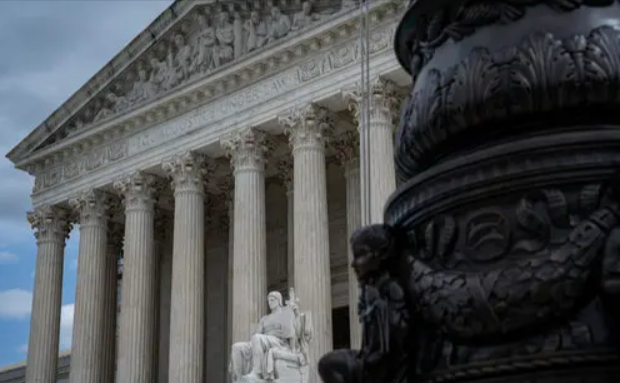Supreme Court Just Issued Sudden Surprise Verdict In Favor Of Trump!

The U.S. Supreme Court denied a lawsuit challenging a 2017 tax bill signed by former President Donald Trump that sought to limit the funding source for his significant tax cuts.
Kathleen and Charles Moore, who contested a $14,729 tax bill imposed on their investment in an offshore company, lost their case in a 7-2 decision by the justices. The court upheld the one-time Mandatory Repatriation Tax (MRT) on shareholders with at least a 10% stake in foreign companies that generated profits, even if the profits were not distributed. The Moores argued they did not receive any profits from their investment and that the tax collection violated their rights under the 16th Amendment. This ruling was reported by The Daily Caller.
“The MRT—which attributes the realized and undistributed income of an American-controlled foreign corporation to the entity’s American shareholders, and then taxes the American shareholders on their portions of that income—does not exceed Congress’s constitutional authority,” the majority stated.
Justice Brett Kavanaugh, author of the majority opinion, advised that the ruling should be viewed narrowly. It applies to “(i) taxation of the shareholders of an entity, (ii) on the undistributed income realized by the entity, (iii) which has been attributed to the shareholders, (iv) when the entity itself has not been taxed on that income.”
“In other words, our holding applies when Congress treats the entity as a pass-through,” Kavanaugh continued.
Sen. Elizabeth Warren (D-MA) quickly responded to the decision, asserting that the court, which she had previously criticized as “illegitimate,” had now provided a basis for her proposal to tax all unrealized gains—a claim Justice Brett Kavanaugh clarified the ruling does not support.
“Right-wing billionaires hoped an obscure legal case would blow up the tax code to avoid paying what they owe, but this effort failed at the Supreme Court. The fight goes on to tax the rich, pass a wealth tax on ultra-millionaires and billionaires, and make the system more fair,” Warren wrote on X.
“Nothing in this opinion should be read to authorize any hypothetical congressional effort to tax both an entity and its shareholders or partners on the same undistributed income realized by the entity,” Justice Brett Kavanaugh emphasized in his majority opinion, according to the Associated Press.
Justice Clarence Thomas, who wrote the majority opinion, disagreed with Neil Gorsuch, arguing that the tax was upheld “only by ignoring the question presented.” He stated that “income” under the Sixth Amendment “is only realized income,” a point they “should not have hesitated” to make.
“Even as the majority admits to reasoning from fiscal consequences, it apparently believes that a generous application of dicta will guard against unconstitutional taxes in the future,” Thomas wrote. “The majority’s analysis begins with a list of nonexistent taxes that the Court does not today bless, including a wealth tax.”
“But, if the Court is not willing to uphold limitations on the taxing power in expensive cases, cheap dicta will make no difference,” he added.